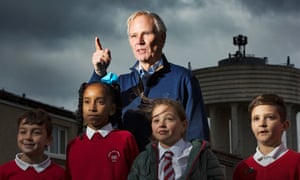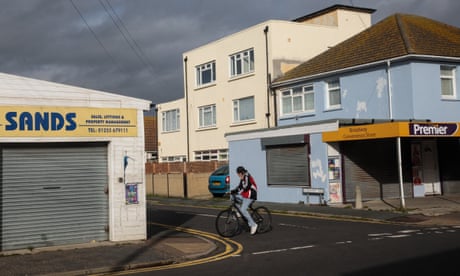A leading United Nations poverty expert has compared Conservative welfare policies to the creation of 19th-century workhouses and warned that unless austerity is ended, the UK’s poorest people face lives that are “solitary, poor, nasty, brutish, and short”.
In his final report on the impact of austerity on human rights in the UK, Philip Alston, the UN rapporteur on extreme poverty, accused ministers of being in a state of denial about the impact of policies, including the rollout of universal credit, since 2010. He accused them of the “systematic immiseration of a significant part of the British population” and warned that worse could be yet to come for the most vulnerable, who face “a major adverse impact” if Brexit proceeds. He said leaving the EU was “a tragic distraction from the social and economic policies shaping a Britain that it’s hard to believe any political parties really want”.
In his final report on the impact of austerity on human rights in the UK, Philip Alston, the UN rapporteur on extreme poverty, accused ministers of being in a state of denial about the impact of policies, including the rollout of universal credit, since 2010. He accused them of the “systematic immiseration of a significant part of the British population” and warned that worse could be yet to come for the most vulnerable, who face “a major adverse impact” if Brexit proceeds. He said leaving the EU was “a tragic distraction from the social and economic policies shaping a Britain that it’s hard to believe any political parties really want”.
The New York-based lawyer’s findings, published on Wednesday, follows a two-week fact-finding mission in November after which he angered ministers by calling child poverty in Britain “not just a disgrace but a social calamity and an economic disaster”. Now he has accused them of refusing to debate the issues he raised and instead deploying “window dressing to minimise political fallout” by insisting the country is enjoying record lows in absolute poverty, children in workless households and low unemployment.
The “endlessly repeated” mantra about rising employment overlooks that “close to 40% of children are predicted to be living in poverty two years from now, 16% of people over 65 live in relative poverty and millions of those who are in work are dependent upon various forms of charity to cope”, he said.
Amber Rudd, the work and pensions secretary, said in November she was “disappointed to say the least by the extraordinary political nature” of Alston’s language after his tour of places including Newcastle, Glasgow, Belfast, Cardiff, Jaywick and London. Alston replied in his 21-page final report that there was an “almost complete disconnect” between what ministers and the public saw. The impact of austerity was obvious to anyone who opened their eyes, he said.
In his most barbed swipe at Rudd and her predecessors in charge of welfare, he said: “It might seem to some observers that the department of work and pensions has been tasked with designing a digital and sanitised version of the 19th-century workhouse, made infamous by Charles Dickens.”
He said he had met people who had sold sex for money and joined gangs to avoid destitution.
The government hit back calling Alston’s report “barely believable”.
“The UN’s own data shows the UK is one of the happiest places in the world to live, and other countries have come here to find out more about how we support people to improve their lives,” a spokesperson for the Department for Work and Pensions said.
“Therefore this is a barely believable documentation of Britain, based on a tiny period of time spent here. It paints a completely inaccurate picture of our approach to tackling poverty.”
Alston will present his report to the UN Human Rights Council in Geneva next month and will argue that successive Conservative-led governments persisted with austerity and welfare cuts amid high levels of employment and a growing economy despite evidence that large-scale poverty was persisting. In doing so, “much of the glue that has held British society together since the second world war has been deliberately removed and replaced with a harsh and uncaring ethos ... British compassion has been replaced by a punitive, mean-spirited and often callous approach apparently designed to impose a rigid order on the lives of those least capable of coping.”
The report slams the government’s austerity programme, with criticisms of “shocking” rises in the use of food banks and rough sleeping, falling life expectancy for some, the “decimation” of legal aid, the denial of benefits to the severely disabled, falling teachers’ salaries in real terms and the impoverishment of single mothers and people with mental illness.
Alston said austerity had “deliberately gutted” local authorities, shrinking library, youth, police and park services to the extent that it was not surprising there were “unheard-of levels of loneliness and isolation”.
There was some praise for ministers for increases in work allowances under the universal credit welfare system and supporting the national minimum wage, but Alston said these measures had had not stopped the “dramatic decline in the fortunes of the least well-off”.
He recommended ministers reverse local government funding cuts, scrap the benefits cap, eliminate the five-week delay in receiving initial universal credit benefits and rethink the privatisation of services including rural transport.
“Thomas Hobbes observed long ago, such an approach condemns the least well-off to lives that are ‘solitary, poor, nasty, brutish, and short’,” he said. “As the British social contract slowly evaporates, Hobbes’ prediction risks becoming the new reality.”

